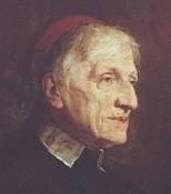 Fr. Eduard Perrone, "A Pastor's Descant" (Assumption Grotto News, November 18, 2001):
Fr. Eduard Perrone, "A Pastor's Descant" (Assumption Grotto News, November 18, 2001):
One might rightly ask why I would devote so much ink to the subject of the charismatic Movement when there are so many other aberrations in the Church today. The answer is that most of them are clearly false because they vie in a conspicuous manner with the doctrines of the Church or its norms of worship. The charismatic movement on the other hand seems to have taken hold among many who are devoted to Catholic truth. This is precisely why there is a danger of being misled into this movement which is largely a spiritual counterfeit. As I have said, there are surely those whose spiritual lives have enjoyed a true renewal by the working of the Holy Spirit. This is in the order of the ordinary working of God who sanctifies through the sacraments, prayer, the many graces that are available to all. One of many difficulties with the CM (charismatic movement) is that its experiences are reserved only for the initiates: a precarious posture of exclusivity to the special gifts of the Holy Spirit. My pastoral then worry is well-founded: if the CM is true, then I ought to do everything possible so that my parishioners will not lack this unique relationship with the Holy Spirit. But if it is fraudulent, I must be assiduous in identifying its fallacies.
Today I want to say something about the often-made claim that the CM must be OK because the bible clearly mentions the experience of “baptism in the spirit.” For charismatics this is the necessary inaugural event that separates a charismatic practitioner from the rest of us. The idea is the essentially non-Catholic one that the sacrament of baptism by water is insufficient or at least that there remains a second “blessing” conferred by the laying on of hands in which one receives the fullness of the Holy Spirit. The consequence of this is that the initiate usually is enabled to speak in tongues, prophesy, heal, exorcise demons, etc. We find these unusual abilities mentioned in the Acts of the Apostles and at the end of St. Mark’s Gospel.
Now, we know that the apostles received the promised Gift of the Holy Spirit on Pentecost in a distinct experience. If not for them, why not a separate bestowal of the Holy Spirit for everyone? The answer is that the apostles were in a unique situation. They were “washed clean” by Jesus at the last super but lacked the Personal Gift of the Holy Spirit until Pentecost. But for all of us who have become Christians since the time of the Lord’s passion and death and since Pentecost, all that is needed is to “be baptized … and you too will receive the Holy Spirit” (Acts 2:38). Like the apostles, we would not have been able to receive the Holy Spirit before Pentecost, because Jesus had not yet been glorified (cf. John 7:39). Saint Paul, like the rest of us who became Christians after Pentecost, was baptized. There is the unusual case of Cornelius in the Acts of the Apostles who appears to have received the Holy Spirit apart from baptism. But the conclusion of his Christian conversion story (not the beginning) is that he and his household is baptized – an event that took place to show how God wanted not only Jews but Gentiles also to be baptized.
Note that although the biblical term baptism has many uses (the ‘baptism’ of Saint John the Baptist; the ‘baptism’ of Jesus’ passion and death; the “baptism on behalf of the dead”; as well as the “baptism in the Spirit”), the Church’s tradition has always applied the texts about being baptized in the Spirit to the sacraments of Baptism, Confirmation, or even, according to St. Thomas Aquinas, Confession. Thus, apart from schismatics and heretical sects, the true Church of Christ has always understood this expression to refer to the baptism of water that all of us in Church received, usually as infants. It is the work of God and it perfectly suffices apart from any quasi-sacramental rituals or religious experiences. This fact does not deny the need for what we often hear phrased as “on-going” conversion or the ever-deepening growth in grace and holiness by the ordinary means of prayer, spiritual reading, retreats, spiritual direction, the use of sacramental, the various religious confraternities and pious associations of the laity, etc.
As for the claim of Catholic ‘pentecostals’ that we need to get something more after our baptism by water and the Holy Spirit, I am compelled to say that centuries of the Church’s orthodox theologians and Catholic tradition is against it. Yes, there is yet more that should be said on this topic: the matter of “tongues” and some of the strange associations of those involved in the Catholic CM … another time.



1 comments:
Edward Palamar
said...
We have entered the "age to come" foretold by Jesus in Mark 10:30, the Glorious Manifestation of Our King, Lord, and Savior Jesus Christ. (the Harmonious Gospel of Saint Mark, chapter 10, verse 30)
http://risen-from-the-dead.forumotion.com/
This comment provided on the 117th day of the 2nd year of the General Resurrection of the Dead.
Post a Comment